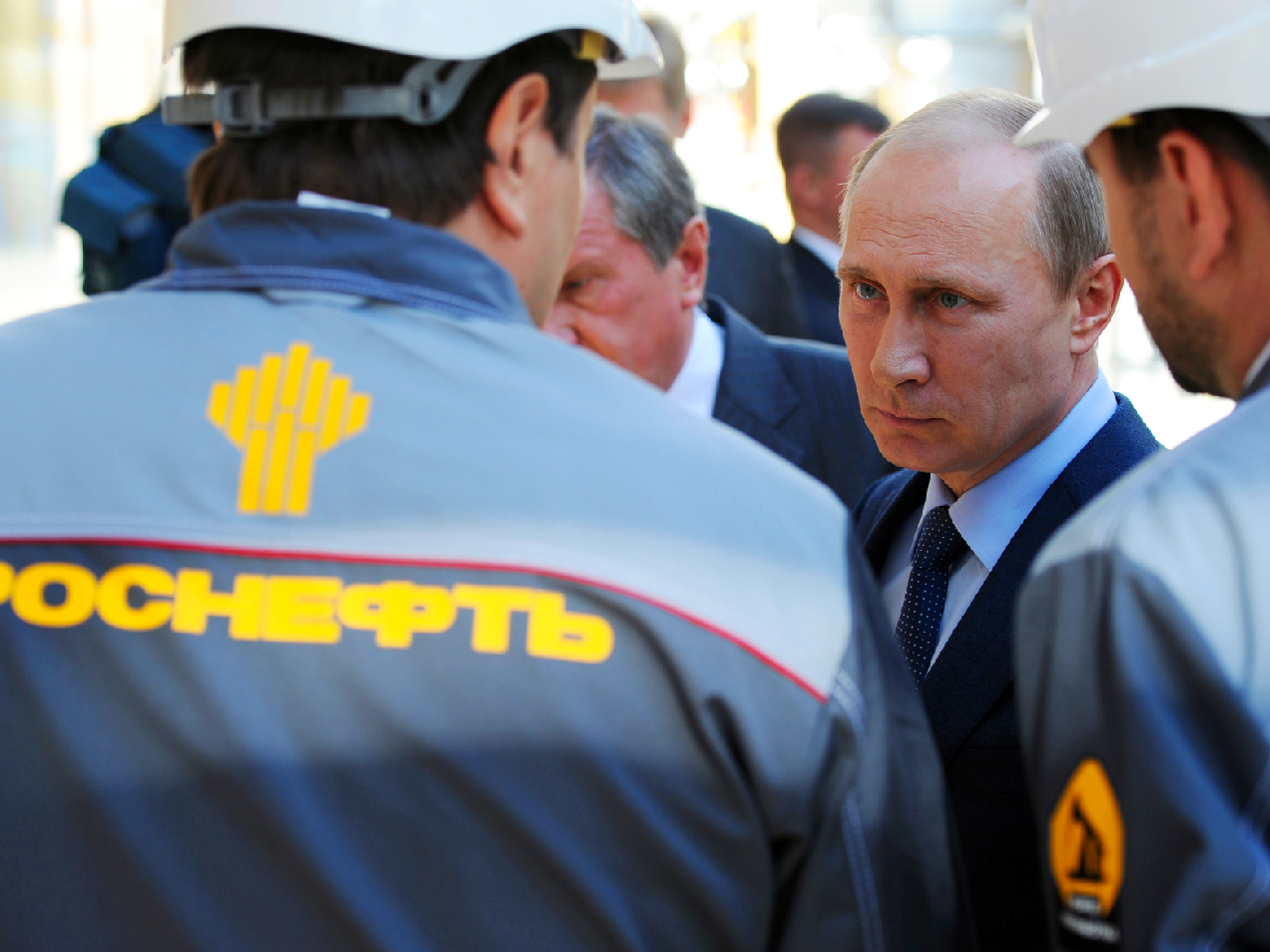The election of Donald Trump could have major ramifications for energy geopolitics.
More concretely, here’s what could happen regarding Russia, Iran, and the US energy market.
First up, Russia
The Obama administration previously issued an executive order that imposed financial sanctions on Russia in response to the country’s actions in Ukraine.
Part of the sanctions included the prohibition of investment, exploration, and technology transfers in Russian energy projects. (For example, Rosneft discovered oil in the Kara Sea inside the Arctic Circle in September 2014, but could not continue joint explorations with Exxon due to the sanctions.)
Fast forward two years, throughout the election season, and Trump has advocated improving relations with Russia. And immediately after he was elected, Russian president Vladimir Putin was one of the first leaders to publicly send his congratulations.
There is "the potential for a reset in US-Russia relations, which would have large implications for energy," wrote Helima Croft, the global head of commodity strategy at RBC Capital Markets in a note. (Although, we should note that a reset in relations is not a guarantee.)
"Given that Trump has called for better relations with Moscow, and some of his senior advisors have strongly criticized the Russian energy sanctions, we believe that these measures could be revoked by the incoming administration," she continued. "This would be beneficial for the development of these greenfield projects and would put US companies on more equal footing with their European counterparts when it comes to operating in Russia."
Next, Iran
Trump has called the Iran deal "one of the worst deals ever negotiated." His election now increases the possibility of a "snap-back" of sanctions on Tehran - which is possible since they were waived not repealed, Croft wrote.

She added that Trump will likely face "limited pushback," given that 1) Congress has been more hawkish than Obama administration on Iran and 2) the House and the Senate are again both Republican.
"Even though the European Union energy sanctions have been formally lifted, the snap-back of US sanctions could certainly curb the enthusiasm of foreign companies looking to invest in Iran's energy sector and thereby limit Iran's ability to significantly ramp up output from current levels in coming years," she argued.
Finally, stateside
Croft and her team write that it's worth keeping an eye on the possible repeal of key regulations such as the Corporate Average Fuel Efficiency Standards (CAFE) and the Renewable Fuel Standards (RFS) - both of which could boost gasoline demand.
As for other Trump policies, she wrote:
"Broadly speaking, Trump's energy policies remain relatively short on comprehensive details. His call for weaning the US from OPEC oil imports appears particularly challenging, as while global oil trade is fungible, certain US refiners will continue to demand a certain type of barrel (for reasons stretching from the familiarity of the crude to production of a better refined yield). In a similar vein, Trump's vision to materially revive the US coal industry would also be difficult. While progressive climate policies have accelerated the demise of the coal industry, there is much more at play, namely economics. Cheap natural gas prices and aging US coal plants nearing the end of their useful lives mean that returning US coal to its heyday will likely prove unlikely."
As an end note, here's a rough sketch of the president-elect's stated positions:


